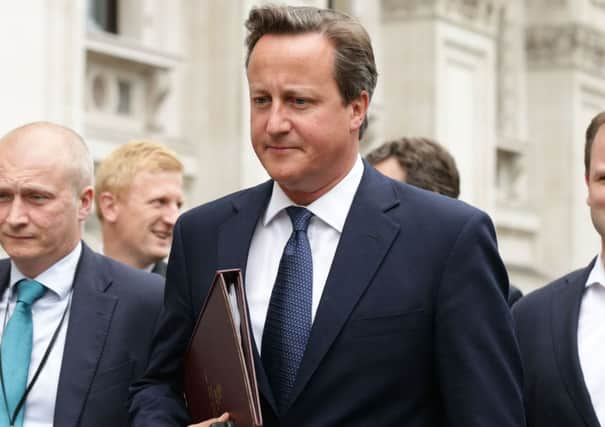Chris Marshall: Alternative to more terror laws


But while experts agree the risk to the UK from those returning from fighting jihad in Iraq and Syria is a real one, there is a growing divide about how these extremists should be tackled.
On Monday, the Prime Minister outlined a series of ad hoc measures which will hand extra powers to the police to crack down on those they suspect are intent on joining up with the group now commonly referred to as Islamic State (IS) or Islamic State of Iraq and the Levant (Isil).
Advertisement
Hide AdAdvertisement
Hide AdAround 500 British citizens are thought to have travelled to fight in the Middle East, many enlisting with IS, including a former London rapper suspected of being involved in the death of US journalist James Foley.
Among the measures being put in place to nullify the growing threat are new powers allowing police to seize passports and those which will compel airlines to pass on passenger lists.
There will also be an extension of the Temporary Prevention and Investigation Measures (Tpims), which will allow the authorities to geographically re-locate anyone they suspect to be involved in terrorism.
Perhaps the most contentious of the new measures, the extension of the Tpims effectively revives control orders, which were scrapped in 2011.
Writing in The Scotsman yesterday, Dr Doug Weeks, a terrorism expert at St Andrews University, said the UK government was once again attempting to legislate itself out of trouble, a response which was reactive rather than proactive.
Long term, the government needs to realise that prevention is better than cure. However, this does not require painful introspection about what is so wrong with British society that it drives young men into the arms of terrorists.
As Mr Cameron has pointed out, this is about a “poisonous” ideology which uses social media to infect the minds of the young.
While hundreds have left Britain for the Middle East, the same is true in France, Germany and the United States.
Advertisement
Hide AdAdvertisement
Hide AdIncreased security measures will only go some way to neutering the threat. Other governments are spending millions on community education projects which reach out to those at risk of being radicalised. The UK government should follow suit.
Some criminologists are optimistic about the threat from those returning home, claiming they will have seen enough violence to last them a lifetime.
The thought is a comforting one, but it remains to be seen whether it is little more than a forlorn hope.